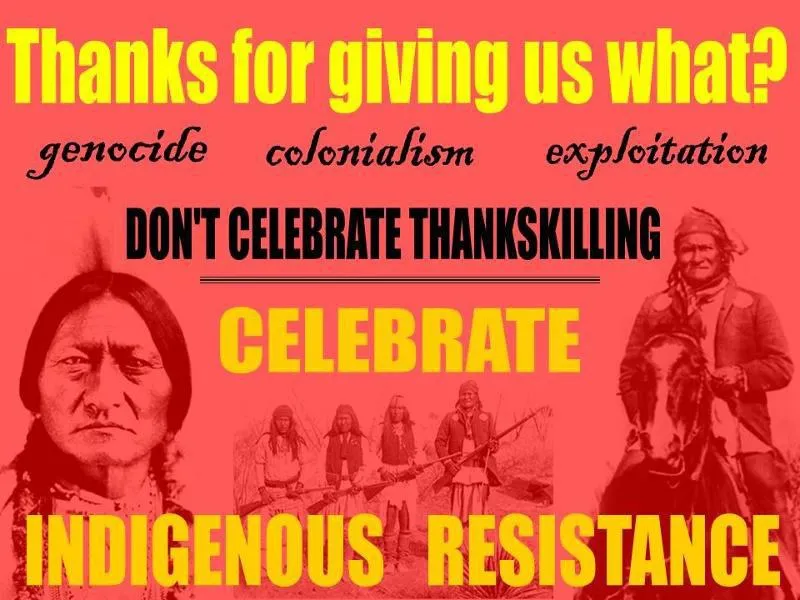In a society often overshadowed by misconceptions and historical inaccuracies, finding meaningful ways to honor Native American communities during Thanksgiving is a valuable endeavor. As the holiday season approaches, embracing the essence of gratitude can be intertwined with respect for the original inhabitants of this land.
How To Honor Native American At Thanksgiving? Discover how to celebrate Thanksgiving in a manner that acknowledges the contributions, culture, and traditions of Native Americans, shedding light on the rich tapestry of this nation’s history with 49native.
Debunking Thanksgiving Myths: A Native American Perspective
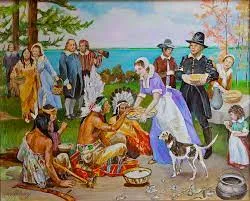
Thanksgiving, a beloved holiday for many, carries a different meaning for Native Americans, a poignant reminder of their history marred by genocide, land theft, and cultural assault. While the mainstream narrative often portrays the first Thanksgiving in 1621 as a harmonious event, the reality was quite different. Native Americans were not invited, and the aftermath was marked by hostility and death.
A Distorted Narrative
The image of the peaceful Pilgrim-Native American gathering was crafted after the formation of the United States to legitimize westward expansion and Manifest Destiny. It is one example of the many historical inaccuracies that complicate our perception of this month.
For Native Americans, Thanksgiving symbolizes the start of assimilation, forced displacement, and the erosion of their cultural heritage following European contact.
National Day of Mourning
Since 1970, Native Americans have convened yearly from coast to coast to observe the National Day of Mourning as an alternative to Thanksgiving. This day serves as a means to pay tribute to their Native ancestors and mourn the genocide they endured. It also stands as a protest against the persistent racism and oppression faced by Native American communities today.
Unraveling a False History
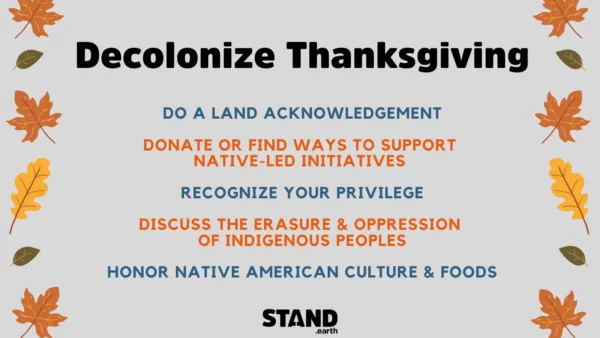
The historical lessons taught in schools about November events often perpetuate inaccuracies, simplifications, and untruths. This includes the depiction of Native Americans as a people of the past, disconnected from the present. Such oversimplified portrayals not only fail to recognize the rich diversity within Tribal Nations but also cultivate stereotypes and cultural appropriation.
Heritage month curricula, at times, unintentionally reinforce these stereotypes, rather than challenging them. For generations, Americans have been exposed to a one-sided history that downplays the harsh realities of this month.
Most individuals were introduced to the Thanksgiving story as children, centering on brave Pilgrims and their welcoming Native hosts. Few had the opportunity to delve into the genuine history of Indigenous peoples. It’s only later in life that many encounter the grim truths of the events that transpired during this time.
Unveiling the genuine history of Thanksgiving and recognizing the complex emotions it stirs in Native American communities is an essential step toward fostering cultural understanding, rectifying historical inaccuracies, and promoting genuine unity.
How To Honor Native American At Thanksgiving?
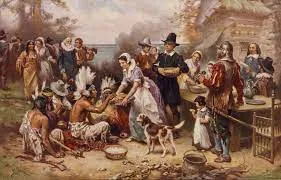
Thanksgiving, a time-honored American tradition, has long been associated with joyful gatherings and feasts. However, the origins of this holiday tell a more complex story, one intertwined with historical events and the experience of Native Americans.
While the traditional narrative revolves around the Pilgrims and the Wampanoag people, there is a deeper and less celebrated history to explore. This guide aims to shed light on the true spirit of Thanksgiving by acknowledging its multifaceted past and providing meaningful ways to honor Indigenous American communities.
1. Acknowledge the National Day Of Mourning
The National Day Of Mourning stands as a solemn remembrance of the Native American perspective on Thanksgiving. It’s an opportunity to shift our intention from celebration to reflection and reparation, paying respect to those lost to disease and violence inflicted by European settlers.
2. Learn About The Land You Are On
To genuinely honor Native American communities, it’s essential to learn about the land you inhabit and its history. Each tribe has unique traditions and practices, making research vital to understanding and respecting the heritage of the land’s original inhabitants.
3. Support Native Farmers and Distilleries
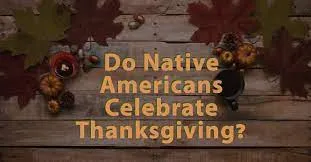
Thanksgiving feasts often feature a variety of food and drinks. This presents an excellent opportunity to support local businesses, such as Native farmers and Indigenous-owned distilleries. Explore resources like the Native Lands App to discover local markets and artisans.
4. Invite Your Family To Join In On The Festivities
Engage your family in the spirit of Thanksgiving by involving them in cooking traditional Indigenous dishes. Embrace Native American games and activities, allowing everyone to connect with the culture and heritage of the land.
5. Implement Native American Films
Transform Thanksgiving into a day of cultural exploration by expanding your film selection. Explore movies that highlight Native American stories and experiences, offering a fresh perspective on the holiday.
6. Decolonize Your Playlist
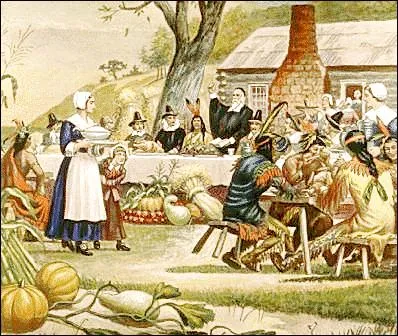
Enhance your holiday experience with a thoughtfully curated Thanksgiving playlist that celebrates Native American artists. Discover talented musicians and immerse yourself in their unique sounds.
7. Celebrate Native American Designers and Artists
Support Indigenous creativity by exploring Native American-owned fashion brands and artists. Embrace authentic and meaningful fashion, art, and design rooted in cultural heritage.
8. Support Native People
In these challenging times, it’s crucial to extend direct support to Indigenous communities. Organizations like the Native Wellness Institute, the First Nations COVID-19 Emergency Response Fund, and the Native American Heritage Association are making a significant difference. Your support can help address the unique challenges faced by Native Americans and contribute to their well-being.
By localizing your efforts and understanding the history and struggles of Native American communities, you can make a meaningful impact and honor the true spirit of Thanksgiving. This holiday becomes an opportunity to acknowledge the past, celebrate cultural diversity, and support those who have been historically marginalized.
Read more: What Is The Date Of Native American Day Of Mourning?
Engaging Activities for This Month: Allies’ Actionable Steps
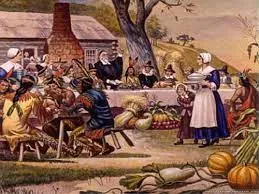
November is Native American Heritage Month, a time to reflect upon and acknowledge the rich history and culture of Native American communities.
For non-Native individuals, this month presents a unique opportunity to become allies, actively engaging in the decolonizing process and fostering a more inclusive society. Let’s explore actionable steps and alternative activities to embrace during this significant month.
Educate Yourself About Native American Nations & Tribes
One crucial way to be an ally is to ease the burden on Native Americans by taking proactive steps to educate yourself about their history and culture. Begin by using the Native Land app or website to discover whose land you currently occupy. Although these maps are not entirely precise, they serve as valuable tools for acknowledging and understanding the Native history of your city, state, or country.
Simply input your location’s name to learn about the languages, treaties, and land origins in your area. While these resources may not display current Tribal Nation boundaries, they offer a solid foundation for further exploration. To access more precise information regarding your location, visit the Native Land site to initiate in-depth research.
Celebrate & Recognize Native Existence Year-Round
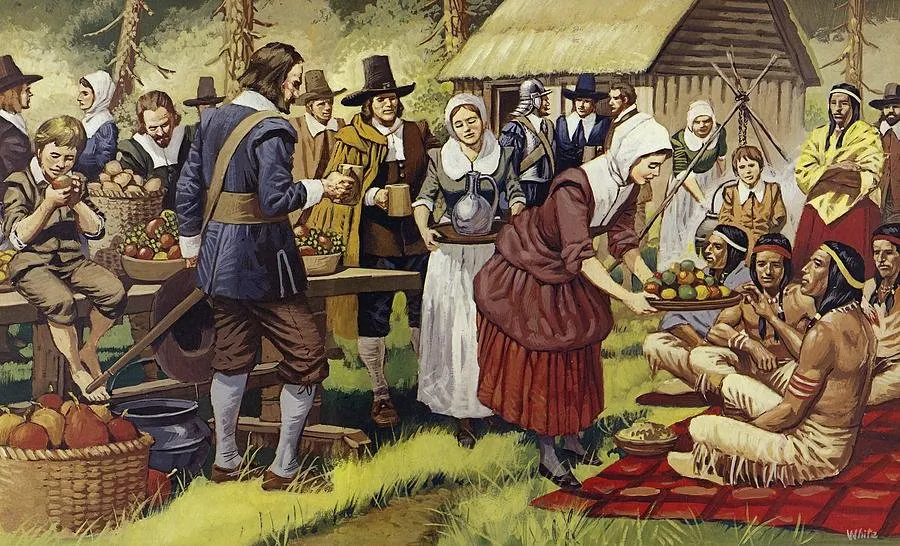
While Native Americans have diverse views on celebrating Thanksgiving, allies can show gratitude year-round without disregarding the struggles and existence of Native people. Celebrate and acknowledge Native history and cultures throughout the year.
Learn by engaging with Native American media, reading books authored by Indigenous writers, supporting grassroots Native-led organizations and businesses, and continuously deepening your understanding of Native American history and contemporary lives. Indigenous Peoples are integral to the cultural fabric of our nation and should be celebrated consistently.
Incorporate Indigenous Foods Into Your Traditions
As we commemorate Native American Heritage Month and celebrate Thanksgiving, consider incorporating Indigenous foods into your traditions. Embrace recipes made from Native ingredients, such as turkey, corn, beans, pumpkins, and wild rice.
For those less familiar with Native cultures, this is an opportunity to explore Indigenous foods, recipes, and cooking techniques, connecting with the native ingredients that have nourished people for generations. It’s also a chance to understand the difference between cultural appropriation and appreciation, ensuring that you respect traditions in your preparations.
The goal is not to erase Native American Heritage Month but to celebrate it in a way that honors the true origins of the holidays while recognizing the resilience and triumphs of Native American communities. Native Americans are an integral part of our nation’s history, and this month provides a chance to celebrate their contributions while embracing the values of gratitude and unity.

